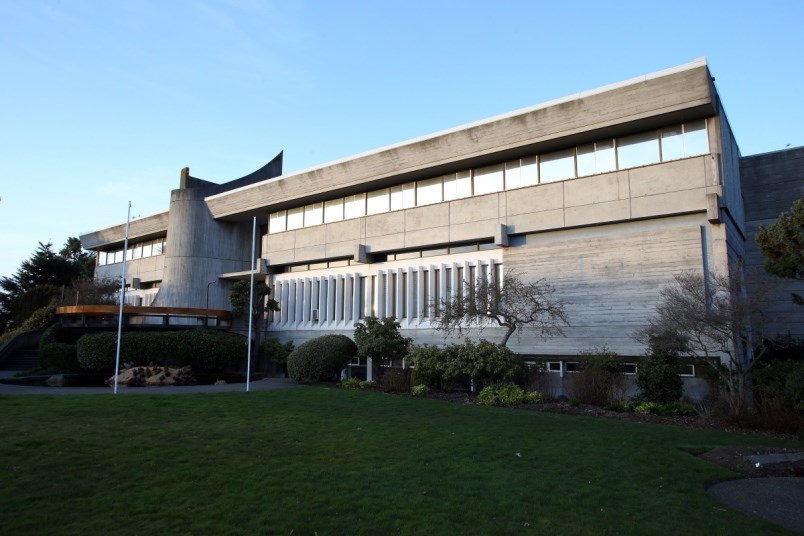I noted last week that Saanich is one of five municipalities around the world participating in a One Planet Cities initiative organised by Bioregional, a U.K.-based non-governmental organization. The idea is simple: How do we reduce our overall ecological footprint (about half of which is carbon emissions) to just take our fair share of the Earth’s resources, instead of the three to five planets’ worth we currently use?
Based on Bioregional’s 10 “One Planet” principles, the initiative addresses the “usual suspects” of sustainability — energy, transportation, food, materials and waste, water, green space and so on. But Bioregional begins with three principles about people and community: Health and happiness, equity and the local economy, and culture and community. This helps us focus on why we are doing this; to enable us all to lead good-quality lives, within the ecological constraints of our one small planet.
During the first year, which just ended, twelve Saanich-based organizations have created One Planet Action Plans or Scans. In addition to the municipality iteself, these include several schools, a college, businesses, NGOs and a church (see oneplanetsaanich.org for details). So what exactly are they doing, or planning to do?
First, Saanich itself has conducted a Sustainability Scan of the municipality. Based on Saanich’s ecological footprint, the report identifies several priorities related to reducing food waste and adopting a more plant-based diet, reducing the energy consumed in our buildings and infrastructure, reducing dependence on fossil fuel-based transportation and reducing the overall consumption of “stuff” (consumable goods).
Importantly, the Scan notes the many potential areas of synergy between the ten areas of action defined by the principles. For example, it looks at how a focus on local and sustainable food production with reduced meat and dairy consumption and reduced food waste can improve health and well-being, reduce environmental impact from animal wastes and intensive agriculture, strengthen the local economy, reduce water consumption and waste production and reduce the energy use and greenhouse gas production that contributes to global heating.
We can see how these ideas carry forward in the action plans of the twelve pioneering local organizations. The four schools (Artemis Place, Reynolds Secondary, Claremont Secondary and Mount Douglas Secondary), as well as Camosun College, all have initiatives that address food production, consumption or waste and provide hands-on learning in school gardens, land conservation or farming. In addition, there are projects in rainwater collection, a clothing swap and surveys and advocacy in support of public transportation.
Among the private-sector participants, Beespot is working to build compact Green Passive House neighbourhoods, while the purpose of Bumblebee Electric Vehicles, which is a “Community Contribution Company,” is to accelerate widespread adoption of electric vehicles and solar-energy products. In addition, both the Uptown retail centre and the Mt. Tolmie branch of the VanCity Credit Union are taking a number of actions.
The two NGOs are Haliburton Farms and Creatively United for the Planet. Haliburton is a community organic farm that has been advancing sustainable food in the region since 2001; it is linking its education work to the One Planet Principles and is accessing clean transportation options for deliveries with Bumblebee. Creatively United is focused on the arts and communication, and is creating videos to showcase local leaders who are providing positive and sustainable solutions. Finally, the Unitarian Church has initiated a carbon challenge to motivate members to change their driving and flying habits, install electric-vehicle chargers, share recipes to encourage low-carbon food choices, and undertake advocacy to senior levels of government about climate action.
A celebration of the first year of work was held in June at the Horticultural Centre of the Pacific, and both the Mayor of Saanich, Fred Haynes, and the Capital Regional District chairman, Saanich Coun. Colin Plant, were there to acknowledge these pioneers. This is important, because we need political commitment to move this approach forward, increasing the number of participating organizations and expanding it to the whole of the CRD and beyond.
But while we can show leadership locally, we cannot do this alone. An important part of our local footprint comes from the activities of the provincial and federal governments and large corporations elsewhere. They too must become One Planet organizations, for all our sakes.
Dr. Trevor Hancock is a retired professor and senior scholar at the University of Victoria’s School of Public Health and Social Policy.



